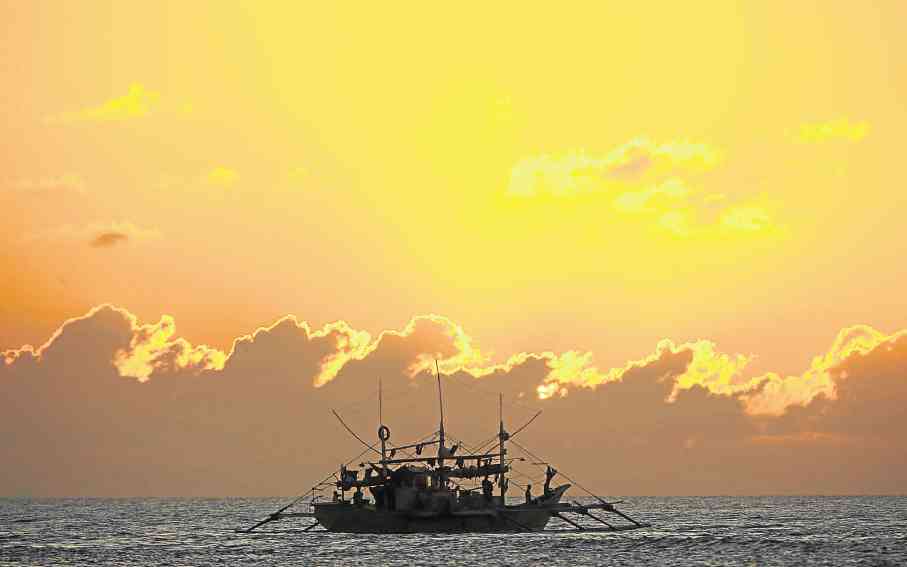
DISPUTED TERRITORY A Filipino fishing vessel ventures into the Panatag (Scarborough) Shoal in the West Philippine Sea. INQUIRER/REM ZAMORA
Malacañang finally made public on Monday the copy of the memorandum of understanding (MOU) recently signed by the Philippines and China creating the framework for future negotiations on the joint oil and gas exploration.
The MOU states that “in accordance with the principles of mutual respect, fairness and mutual benefit, flexibility and pragmatism and consensus, through equal and friendly consultation, the two governments have decided to negotiate on an accelerated basis arrangements to facilitate oil and gas exploration and exploitation in relevant maritime areas consistent with applicable rules of international law.”
It also said all negotiations “will be without prejudice to the respective legal positions of both governments.” It also does not “create rights or obligations under international or domestic law.”
The MOU was among the 29 agreements signed by the two countries on November 20, during the state visit of Chinese President Xi Jinping in the Philippines.
READ: PH, China sign MOU on oil and gas development, 28 other deals
China’s expansive claim in the South China Sea includes portions of the West Philippine Sea, but the Permanent Court of Arbitration in The Hague invalidated it in July 2016, favoring the Philippines’ claims in the area. China has refused to recognize the ruling. President Rodrigo Duterte, meanwhile, has chosen to set aside the ruling and engaged Beijing in bilateral talks.
The MOU, however, does not specify the maritime areas to be covered should a joint exploration pushes through.
Under the MOU, the Beijing and Manila will create an Inter-Governmental Joint Steering Committee and one or more inter-entrepreneurial working groups that will be composed of government officials, relevant agencies, and other individuals from both the Philippines and China.
The steering committee will be co-chaired by the Foreign Ministers of the two governments while their respective Energy Ministers will serve as the vice-chair.
The working groups, meanwhile, will consist of representatives from enterprises authorized by the two governments. China has appointed the state-owned China National Offshore Oil Corporation (CNOOC) as its representative in all working groups while the Philippines will authorize an enterprise that has entered into a service contract with the government.
If there are no such enterprises, authority will be given to the Philippine National Oil Company-Exploration Corporation (PNOC-EC), the MOU noted.
The Philippine-China MOU further states that “any information shared by the two government or their authorized enterprises under the or pursuant to this Memorandum of Understanding will be kept confidential, unless the two governments decide otherwise.” /kga